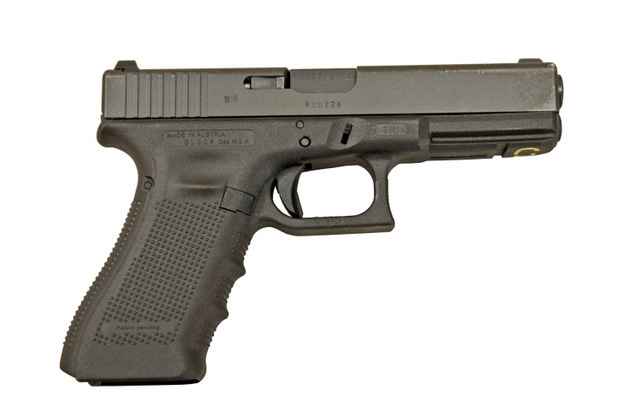Everybody must have guns!

Remember that old Saturday Night Live skit, in which Jon Lovitz addressed single women in their 30s, advising them to “lower your standards”? Yeah, that’s kind of what’s happening with Assembly Bill 139, which would allow any person with a concealed weapons permit from any state to carry legally here in Nevada.
Currently, the state Department of Public Safety is charged by law to compile a list of states that have concealed weapons permit standards that are comparable or stricter than Nevada’s rules. (Currently, there are 14 states on that list.) Anybody who gets a permit from one of those states can legally carry in Nevada.
But under AB 139, Nevada would do away with the list (and all the work that goes into compiling it) and simply allow all concealed weapons permit holders from any state to carry legally in Nevada, regardless of the standards under which their home state issued its permits. (Nevada residents would still have to get a Nevada permit within 60 days of moving here, and permit holders would still have to comply with all Nevada laws. For example, even if another state allows 18-year-olds to carry in their state, that would still not be allowed in Nevada, where the minimum age is 21.)
Douglas County Sheriff Ron Pierini said at a hearing of the Assembly Judiciary Committee this morning that most states have concealed weapons standards similar to those in Nevada, and that it’s not worth the time for the state Public Safety department to research the differences between each state’s rules.
For the record, according to Julie Butler of the Nevada Department of Public Safety, the main criteria that Nevada uses to judge other state’s programs are age requirements, length of the training course to get a permit (Nevada’s is eight hours and includes a live-fire component to demonstrate proficiency), the ability to verify a permit is valid 24 hours a day (via electronic database, so officers in the field can check permits) and the term for which permits are valid (Nevada’s is five years).
The bill is supported by Storey County Sheriff Gerald Antinoro, who is currently the president of the Nevada Sheriffs and Chiefs Association, as well as the Washoe County Sheriff’s Department, the National Rifle Association and the Nevada Firearms Coalition.
But that support isn’t universal. Metro Police lobbyist Chuck Callaway opposed the bill, saying Nevada shouldn’t recognize concealed weapons permits issued under standards that are looser than our state’s. Not only that, he said, but police officers need the ability to verify that permits are valid on the spot, and that might not be possible under AB 139.
“I don’t see the benefits for Nevada citizens of this,” he said.
Metro’s opposition didn’t sit well some of the more zealously pro-gun members of the committee. Assemblywoman Michele Fiore asked Callaway if there was a problem with people presenting fake concealed weapons permits now. Callaway patiently explained that it couldn’t happen now, because Nevada only recognizes permits from states that have instant verification, and doesn’t allowed concealed carrying by people from states that don’t.
After Assemblywoman Victoria Seaman asked Callaway how many of the 36 states whose permits Nevada doesn’t recognize fail to conduct background checks on applicants, he began to answer by saying, “I assume that…”
“You’re assuming?” Seaman interrupted. “You have no facts?”
Not to be outdone, Fiore asked Callaway how many people were arrested who presented invalid out-of-state permits. When Callaway admitted he didn’t have statistics on that point, she began talking over his reply. “So you’re just up here representing your boss [newly elected Clark County Sheriff Joe Lombardo] who was pro-gun when he ran for office?”
Committee Chairman Ira Hansen remained silent during these exchanges, and failed to reprove either Fiore or Seaman for interrupting a witness or general rudeness.
Callaway simply replied that his objections were entirely based on the fact that the Department of Public Safety had determined the standards in 36 states were less stringent than Nevada’s, and that this state shouldn’t accept permits issued under lesser standards.
Assemblyman Elliot Anderson outlined a reasonable distinction when it comes to reciprocity: Issues such as the length of time before a permit expires can be waived, but issues such as the amount of training (and requiring a live-firm demonstration of proficiency with a firearm) cannot. He said he’d consider a bill that gave Nevada reciprocity with states that maintained high proficiency standards.
“I want people who know what they’re doing,” said Anderson. And when it comes to concealed firearms, who could reasonably object to that notion?